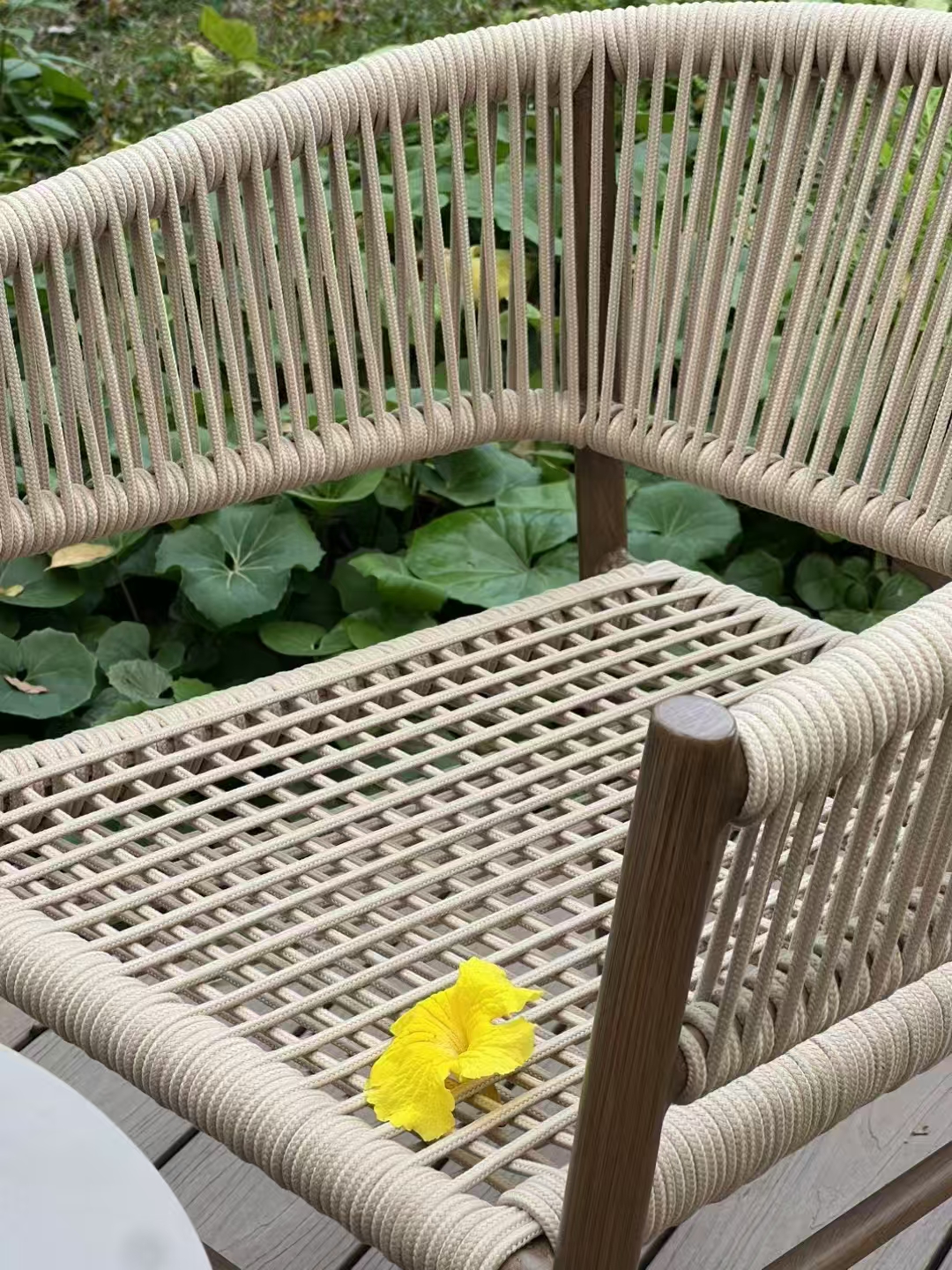Our Location
304 North Cardinal St.
Dorchester Center, MA 02124

Outdoor furniture must be not only stylish and comfortable but also resilient enough to withstand sun, rain, and wind. Solid wood, wicker, and aluminum are three of the most popular materials for outdoor furniture, but their durability, maintenance needs, and ideal environments vary significantly. This article compares their weather resistance to help you choose the best option for your space.
I. Solid Wood Outdoor Furniture: Natural Beauty, But High Maintenance
Strong points:
1.Aesthetic appeal – Natural wood grain suits rustic, farmhouse, or traditional styles.
2. Sturdy structure – High-quality hardwoods (e.g., teak, eucalyptus) resist warping.
3. Eco-friendly – Biodegradable and sustainable if sourced responsibly.
Weak points:
1.Prone to moisture damage – Prolonged rain exposure can cause cracking or mold. 2.Requires upkeep – Needs annual sealing or oiling to prevent fading.
3.Expensive – Premium hardwoods (like teak) cost 2-3x more than aluminum.
Durability Rating: ★★★☆☆
Best for: Dry or partially shaded areas; ideal for those who prioritize natural aesthetics.
II. Wicker Outdoor Furniture: Lightweight & Stylish, But Less Durable
Strong points:
1.Light and portable – Great for balconies or spaces needing frequent rearrangement. 2.Breathable – Doesn’t trap heat, perfect for loungers and hanging chairs.
3.Versatile style – Fits boho, coastal, or modern decors.
Weak points:
1.Vulnerable to UV damage – Prolonged sun exposure makes fibers brittle.
2.Hard to clean – Dust accumulates in weaves; mildew may form if left wet.
3.Weight limits – Not ideal for heavier individuals.
Durability Rating: ★★☆☆☆
Best for: Covered patios or seasonal use; good for renters or budget-conscious buyers.
III. Aluminum Outdoor Furniture: Modern & Low-Maintenance
Strong points:
1.Extreme weather resistance – Rust-proof, waterproof, and UV-resistant.
2.Minimal upkeep – Just wipe clean; no sealing or special treatments needed.
3.Light yet sturdy – Easier to move than iron but still robust.
Weak points:
1.Can feel “cold” – Metal lacks warmth; add cushions or textiles for comfort.
2.May dent over time – Cheap aluminum can bend under heavy weight.
Durability Rating: ★★★★★
Best for: Coastal areas, rainy climates, or commercial spaces (cafés/hotels).
IV. Final Comparison: Which is the Most Durable?
| Material | Sun Resistance | Water Resistance | Maintenance | Lifespan | Best Environment |
| Solid Wood | Moderate | Low | High | 5-10 years | Dry/covered areas |
| Wicker | Low | Moderate | Moderate | 2-5 years | Screened porches |
| Aluminum | High | High | Low | 10+ years | Fully exposed spaces |
Conclusion:
1.Most durable: Aluminum (virtually maintenance-free).
2.Most natural: Solid wood (best for high-end, curated looks).
3.Most affordable: Wicker (good for short-term or decorative use).
V. Buying Guides: Match Material to Your Needs
1.Rainy/coastal climates: Choose powder-coated aluminum + PE wicker (anti-rust).
2.Luxury wood lovers: Opt for teak + waterproof covers (extends longevity).
3.Renters/small spaces: Pick synthetic wicker (budget-friendly, replaceable).
Tips: Regardless of material, use weatherproof covers or storage to maximize lifespan!